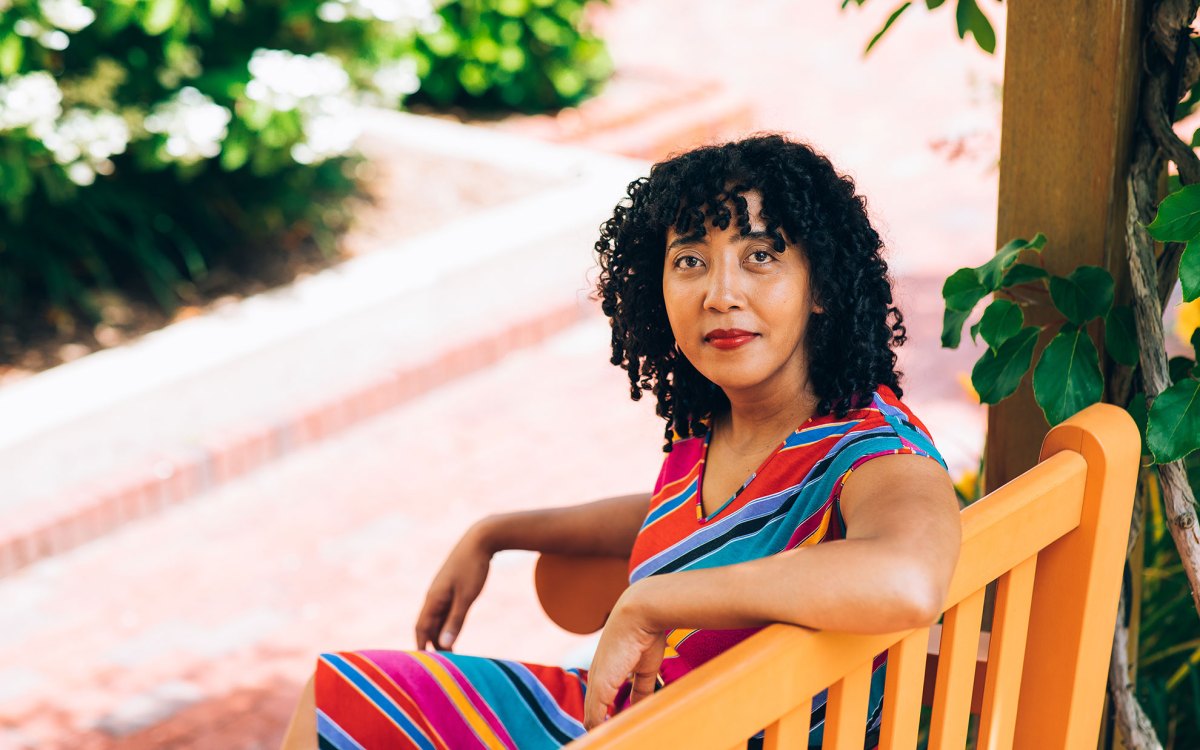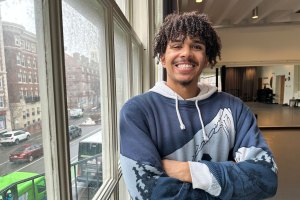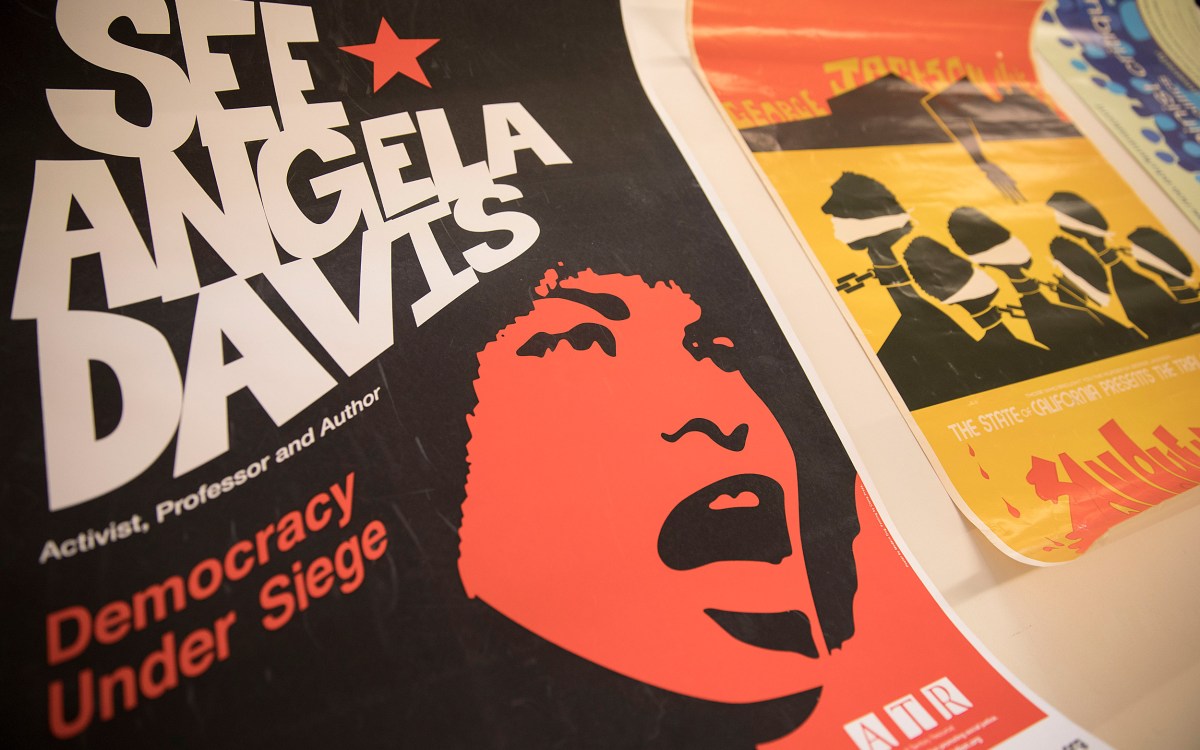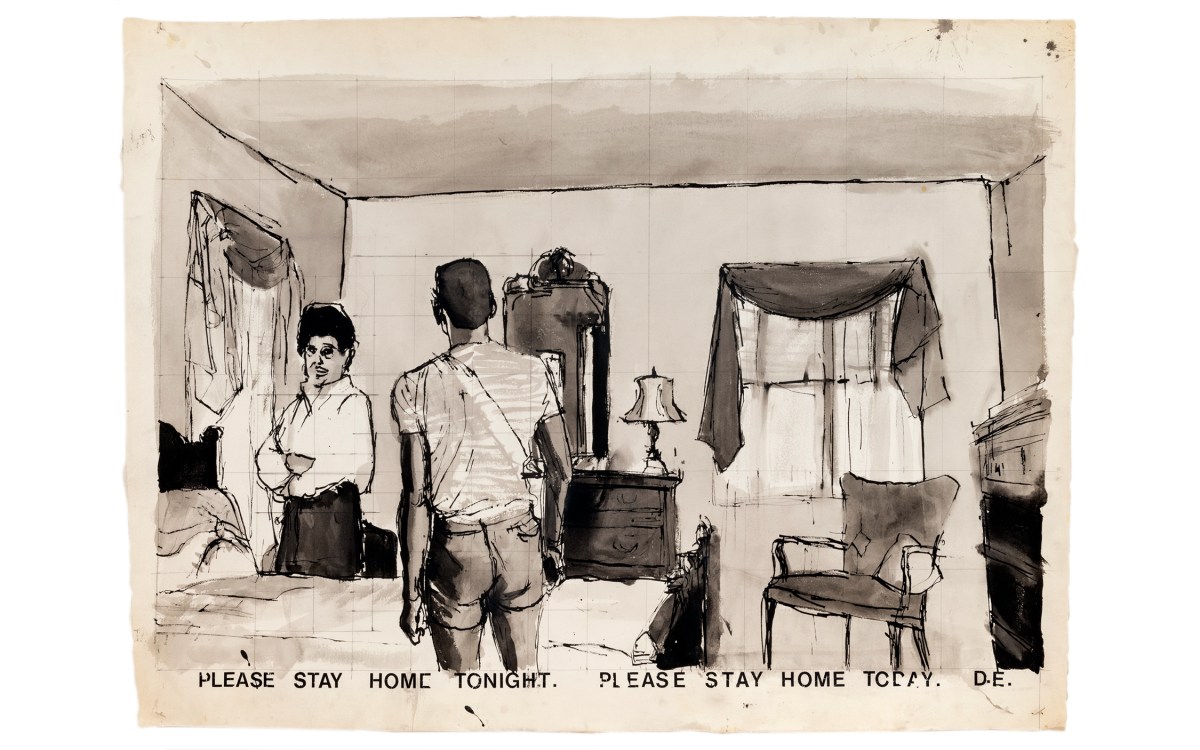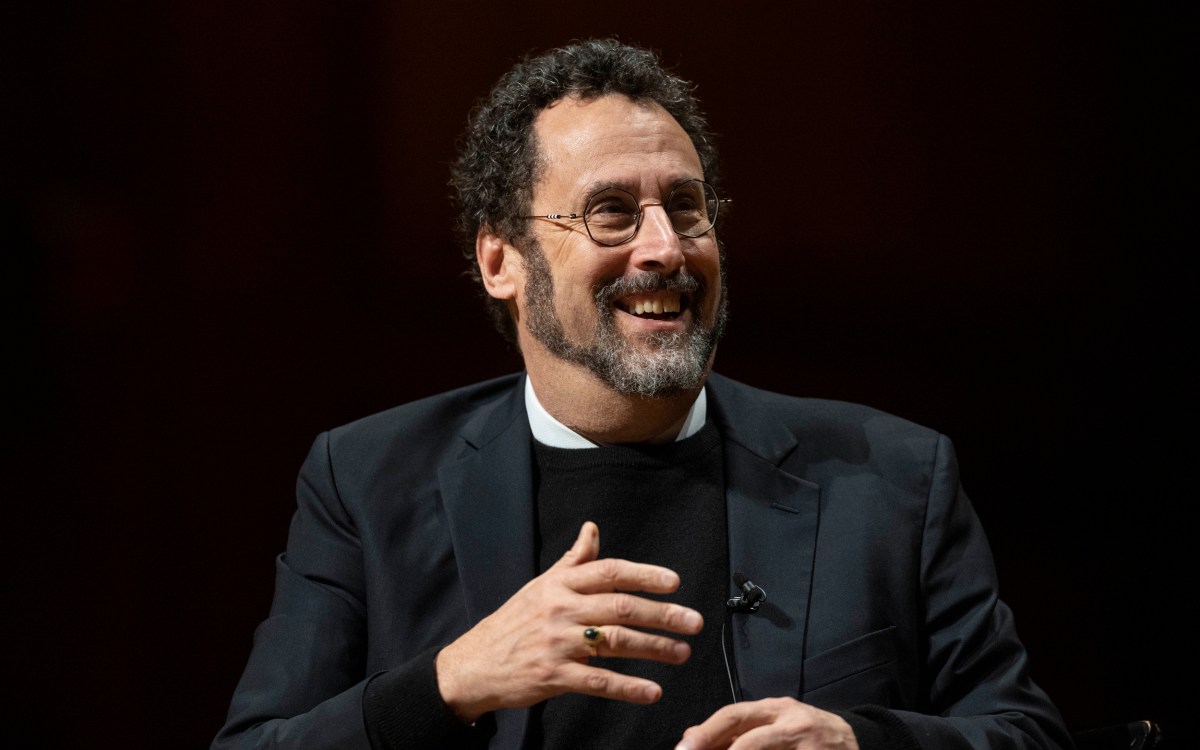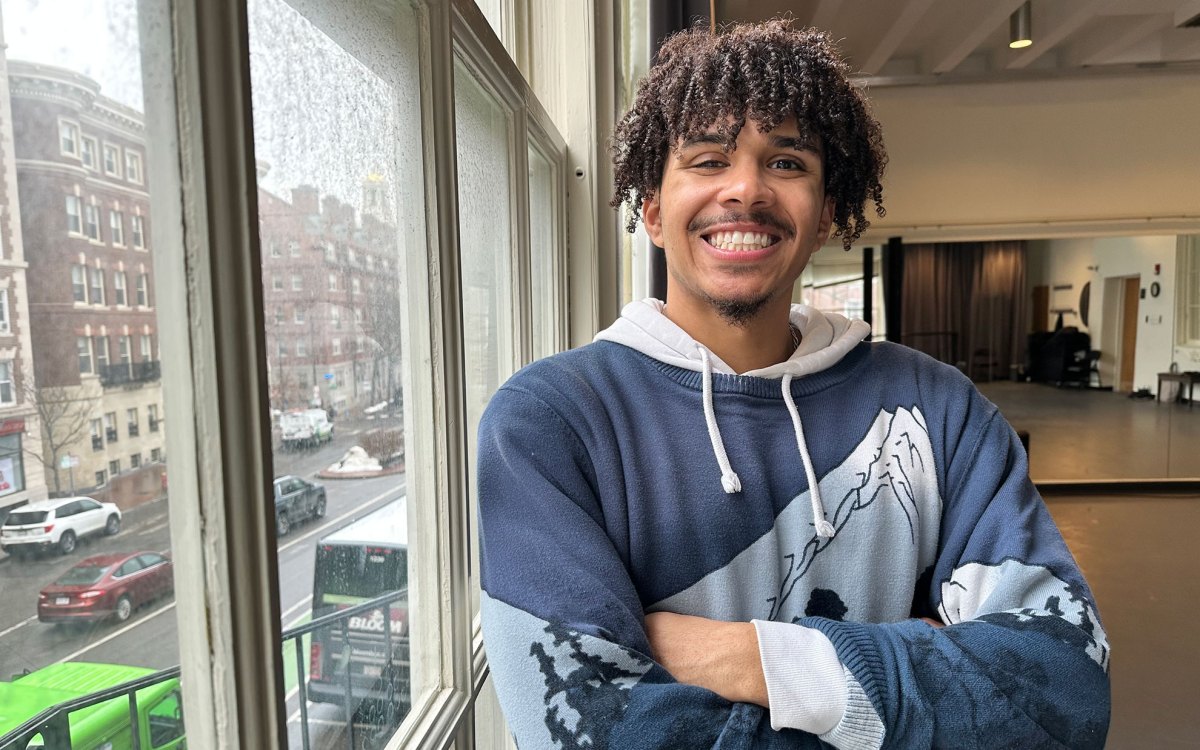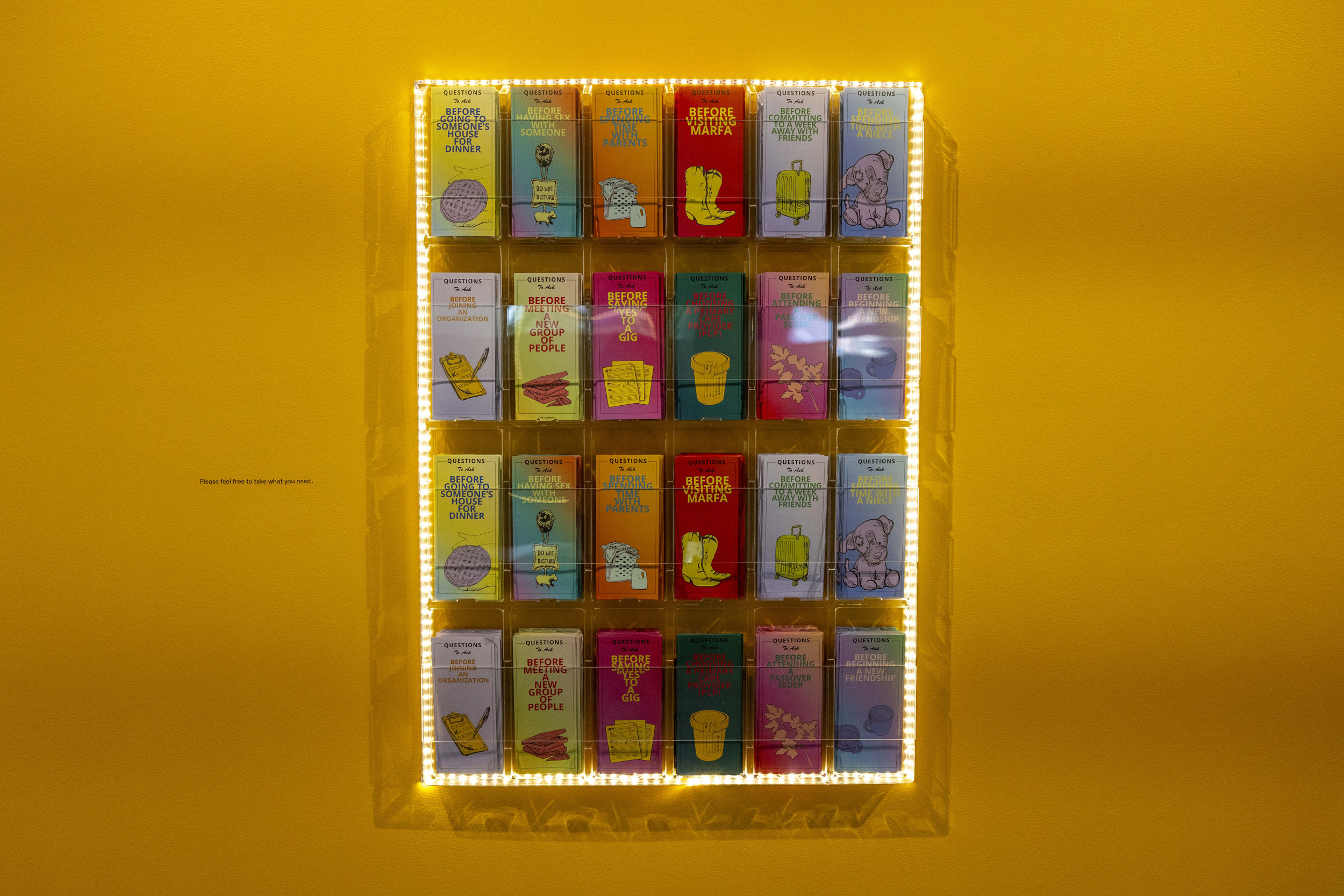
“More Little Ditties” will be on view at the Carpenter Center for the Visual Arts through Sept. 3.
Photos by Scott Eisen
‘Funny … frivolous … serious’
Music and comedy meet queer and Jewish radicalism in Carpenter Center exhibit featuring lockdown serenades, Bat Mitzvah advice, and more
It’s March 2020, and COVID has forced most Americans inside their homes. Morgan Bassichis is panicking at the prospect of not being able to access a piano.
The comedic performer and writer born in Newton, Mass., and based in New York City, wasted no time ordering a keyboard. Soon it provided the backing track for a series of short Instagram videos. Inspired by stories of quarantined Italians singing to one another from their balconies, Bassichis’ improvised “Quarantunes” ranged from melancholic songs reflecting the unease of social isolation to activism pieces advocating rent suspension and decarceration.
“I was thinking about singing to each other as any shred of comfort that we can be giving,” Bassichis said. “I’ve gotten a lot of feedback since. People say ‘Oh, those were really helpful to me in that moment.’”
Those videos are on display alongside more of Bassichis’ work in an exhibition titled “More Little Ditties” at the Carpenter Center for the Visual Arts. The exhibit will be up through Sept. 3.
“It’s always interesting for the Carpenter Center to be able to present artists when they’re at a real turning point in their practice so that students and our community can understand the creative process and vulnerability of trying something new in public, which can say a lot about an artist’s practice,” said Dan Byers, the John R. and Barbara Robinson Family Director at the Carpenter Center, who curated the exhibit. “It seemed like this was a good moment to offer Morgan this platform to bring together a number of existing works and to think about how they might display things like performance documentation, an album, and social media posts in an exhibition context.”
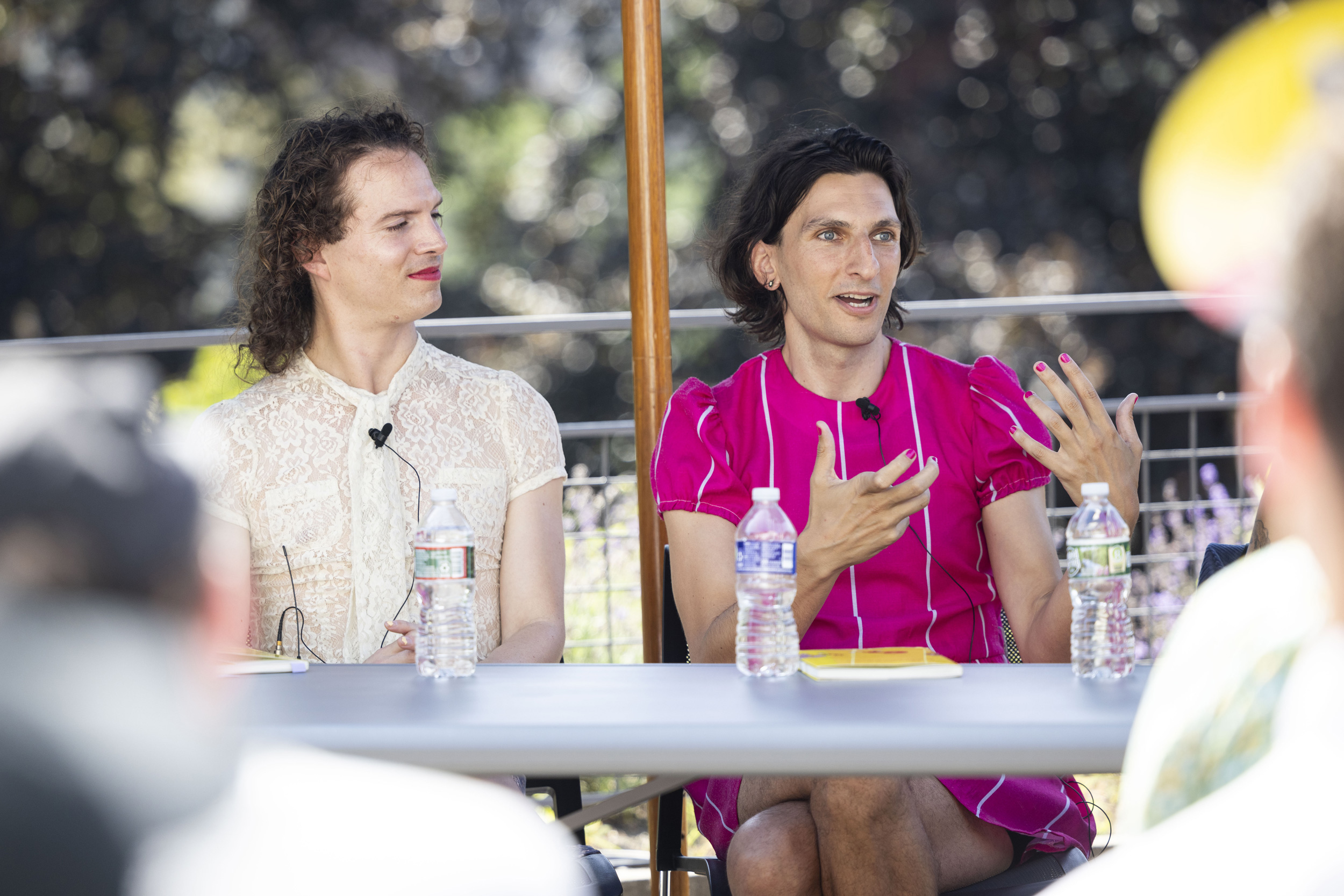
Bassichis makes both solo and collaborative work, often on queer or Jewish themes, that combine stand-up comedy, music, and activism.
“For so many queer people, humor is a tool from such an early age for navigating hostility and danger and maneuvering through a world and saying difficult truths, perhaps in a way that is more palatable or hear-able,” Bassichis said.
Comedy can also make contemporary art feel more accessible and relatable, as well as create space for reflection and understanding on topics that might otherwise cause people to “shut down,” Byers said. The curator added that he is particularly interested in the way Bassichis has been translating performance-based work to a gallery experience.
“This exhibition is a combination of some really funny and wickedly frivolous social critiques and really dedicated, serious activism,” Byers said. “We’re trying to create an environment where people feel like they want to sit down, take a load off and really watch, and hopefully be changed.”
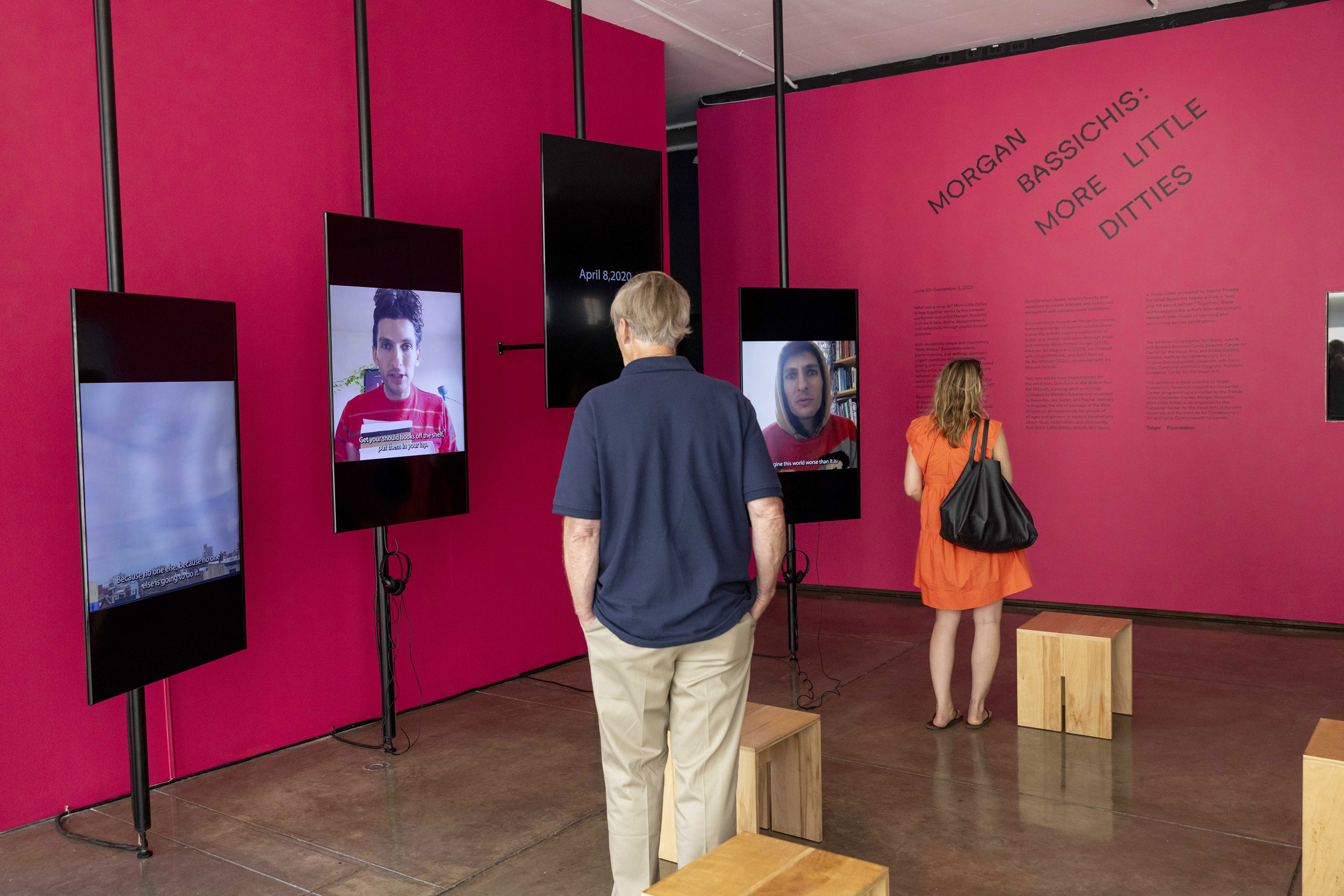
The exhibit invites viewers to sit and don headsets to watch video excerpts from past live performances or dance along to a new animated music video the artist describes as a “gay pop hit about seltzer.”
It also features copies of Bassichis’ new book, “Questions to Ask Before Your Bat Mitzvah,” which are displayed on a shelf for perusal or purchase. It’s an anthology of essays by 36 writers, activists, and scholars aimed at helping Jewish youth approach modern adulthood and Jewish tradition. The book, which includes a foreword written by political activist and author Angela Davis, addresses questions ranging from the logistical — “Do I have to give a speech?” — to the introspective — “I’m queer/nonbinary/secular/old/not even Jewish, are Bat Mitzvahs for me?” Other questions — like “what do Palestinian kids do when they turn 13?” — aim to help readers find and deepen solidarity with Palestinians, a core part of Bassichis’ activism.
Bassichis described “Questions” as “the book we wish we had” as teenagers and “the book we hope people might use now.”
“Young people are inheriting this world that is torn apart by climate change and by right-wing nationalism,” Bassichis said. “They are both very active around the struggles and deserve to have really good answers, and particularly the traditions that they’re inheriting.”
“More Little Ditties” is free and open to the public at the Carpenter Center for the Visual Arts through Sept. 3.
